第89章 LETTER XVII(2)
Mr. Douglas, who had got up his men in most imposing costume, anchored the Abdulsamat close to the Peking, and at once went on board, with the kris with the gold hilt and scabbard presented by the Sultan of Selangor. In the meantime the Governor sent for me to breakfast on board, and I was obliged to go among clean, trim people without having time to change my traveling dress. On deck I was introduced by the Governor to Mr. Low, the Resident in Perak, who has arranged for my transit thither, and to Mr. Maxwell, the Assistant Resident. I was so glad that I had no claims of my own to push when I saw the many perturbed and anxious faces. I sat next Sir William Robinson at breakfast, and found him most kind and courteous, and he interested himself in my impressions of the native States. No one could make out the flags on the Selangor yacht, four squares placed diagonally, two yellow and two red, in one of the red ones a star and crescent in yellow, and on the mizzenmast the same flag with a blue ensign as one of the squares! I wonder if the faineant Sultan who luxuriates at Langat knows anything of the sensationalism of his "yacht."
Mr. Douglas took me back to the launch in fierce blazing heat, which smote me just as I put down my umbrella in order to climb up her side, and caused me to fall forward with a sort of vertigo and an icy chill, but as soon as I arrived here I poured deluges of cold water on my head, and lay down with an iced bandage on, and am now much better. In nine months of tropical traveling, and exposure on horseback without an umbrella to the full force of the sun, I have never been affected before. I wear a white straw hat with the sides and low crown thickly wadded. I also have a strip four inches broad of three thicknesses of wadding, sewn into the middle of the back of my jacket, and usually wear in addition a coarse towel wrung out in water, folded on the top of my head, and hanging down the back of my neck.
Soon after I came into the salon Mr. Wood, the Puisne Judge, a very genial, elderly man, called and took me to his house, where I found a very pleasant party, Sir Thomas Sidgreaves, the Chief Justice, Mr.
Maxwell, the Assistant Resident in Perak, Mr. Walker, appointed to the (acting) command of the Sikh force in Perak, and Mr. Kinnersley, a Pinang magistrate, with Mr. Isemonger, the police magistrate of the adjacent Province Wellesley. With an alteration in the names of places and people, the conversation was just what I have heard in all British official circles from Prince Edward Island to Singapore, who was likely to go home on leave, who might get a step, whether the Governor would return, what new appointments were likely to be created, etc., the interest in all these matters being intensified by the recent visit of Sir W. Robinson. It was all pleasant and interesting to me.
This evening the moonlight from the window was entrancingly beautiful, the shadows of promontory behind promontory lying blackly on the silver water amidst the scents and silences of the purple night.
As one lands on Pinang one is impressed even before reaching the shore by the blaze of color in the costumes of the crowds which throng the jetty. There are over fifteen thousand Klings, Chuliahs, and other natives of India on the island, and with their handsome but not very intellectual faces, their Turkey-red turbans and loin-cloths, or the soft, white muslins in which both men and women drape themselves, each one might be an artist's model. The Kling women here are beautiful and exquisitely draped, but the form of the cartilage of the nose and ears is destroyed by heavy rings. There are many Arabs, too, who are wealthy merchants and bankers. One of them, Noureddin, is the millionaire of Pinang, and is said to own landed property here to the extent of 400,000 pounds. There are more than twenty-one thousand Malays on the island, and though their kampongs are mostly scattered among the palm- groves, their red sarongs and white bajus are seen in numbers in the streets; but I have not seen one Malay woman. There are about six hundred and twelve Europeans in the town and on Pinang, but they make little show, though their large massive bungalows, under the shade of great bread-fruit and tamarind-trees, give one the idea of wealth and solidity.